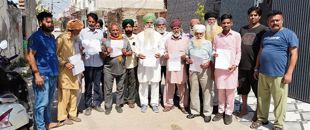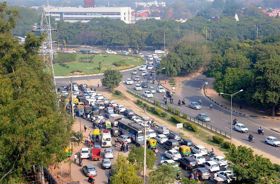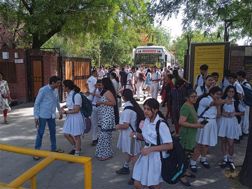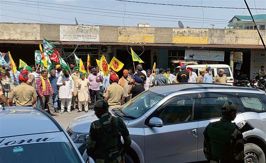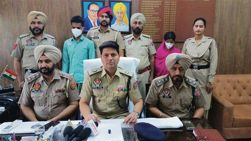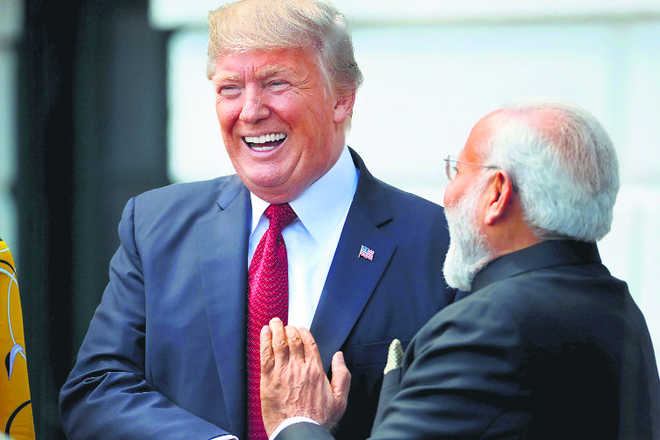
Ashok Tandon
US President Donald Trump’s surprise announcement to share the platform with Prime Minister Narendra Modi at the historic ‘Howdy, Modi’ mega event organised by the affluent Indian diaspora on September 22 has given fresh impetus to the ongoing multi-dimensional engagement between the two strategic partners.
Read also:
‘Howdy’ is a short form of ‘How do you do?’, frequently used to greet people in Texas state, which has 2,70,000 Indian-Americans. The high-profile rally will witness more than 50,000 Indian-Americans, representing 48 states, coming together to emphasise the shared values and aspirations of the world’s two largest democracies.
Pro-India caucus
The extravaganza, including a 90-minute display of India’s cultural pageantry, is especially significant for the Indian-American community and the powerful bipartisan pro-India House and Senate India Caucus at a time when trade tensions between India and the US have increased.
Some highly influential pro-India caucus members, including Democratic Party leader Tulsi Gabbard, Republican Congressman George Holding and Indian-American Congressman Ami Bera, have been playing a stellar role in resolving the trade tensions between the two countries, triggered after US Trade Representative Robert Lighthizer cancelled India’s Generalised System of Preferences duty-free benefits and India hiked tariffs on 28 US products.
Congressman George Holding and Congressman Brad Sherman, co-chairperson of the Congressional Caucus on India, and prominent Indian-Americans have virtually snubbed Pakistan on the Kashmir issue by affirming their stand that Jammu and Kashmir is a bilateral issue and did not require any kind of mediation.
The Congressional Caucus on India, the Senate India Caucus and Indian-Americans remain the largest country-specific caucuses in the US Congress and are replicating the kind of influence the powerful pro-Israeli Jewish congressional lobby enjoys with the American establishment. These two India-friendly caucuses and some political and economic clout-wielding members of the Indian-American community, including Brad Sherman, along with Tulsi Gabbard, made a bipartisan effort to designate India the MNNA status (Major Non-NATO Ally).
A similar move was made in the Senate by co-chairs Mark Warner and John Cornyn.
The MNNA status is currently enjoyed by Japan, South Korea, Israel and Australia.
House India Caucus co-chair Brad Sherman, along with Congressmen Joe Wilson, Ami Bera, Ted Yoho, George Holding, Ed Case and Raja Krishnamoorthi, and Senate India Caucus co-chair Senator John Cornyn with the support of Senate India Caucus Co-Chair Senator Mark Warner, have been striving for increased US-India defence cooperation in the Indian Ocean in the areas of humanitarian assistance, counter-terrorism, counter-piracy and maritime security.
Understanding US President’s presence
At a time when global terrorism, with its epicentre in India’s neighbourhood, is posing a serious threat to humanity and economic inter-linkages are increasingly becoming the common thread of all diplomatic initiatives, President Trump addressing the Indian-American rally together with PM Modi is a big boost to the efforts of the enlightened Indian diaspora in highlighting the common concerns and identifying the areas of mutual interest between the two friendly democracies.
The domestic political mobilisation of Indian-Americans has also given them a vote bank status. It is generally believed that since the past five presidential elections, the Indian diaspora has been playing a crucial role in swinging the verdict, particularly in the crucial states like Florida, where Indian doctors and other professionals have invariably made a difference in the outcome.
For President Trump, the joint appearance at Houston with PM Modi may be a grand PR exercise to influence the Indian-American voters in the run-up to the 2020 elections. Generally speaking, Indian-Americans support the Democratic Party. About 65 per cent of Indian-Americans were Democrats in the 2014 election, according to an independent survey. President Trump may make a surprise announcement to garner support of Modi fans.
More than 60 bipartisan Congressmen have confirmed participation. But some Democrats, including Gabbard, have refused to share the platform with President Trump due to fear of losing their support base.
There are reports that Pakistan’s ISI has been prompting some frustrated Kashmiri outfits and a few self-styled pro-Khalistan elements to disrupt the event.
The Houston rally has evinced keen interest in global diplomatic circles amid growing perception among some strategic think tanks that India has emerged as “a central partner in US efforts to balance rising Chinese power in the Indian Ocean region” and that ” this strategic bet on India — providing diplomatic support and offering valuable deals in exchange for closer future ties — makes long-term sense and is worth continuing to take care of American strategic interests in these regions”.
The deepening of the Indo-US engagement in strategic, economic and defence partnerships, accordingly to analysts here, has consistently been realistic and limited to bilateral cooperation without undermining New Delhi’s equally constructive engagement with other countries in view of the fact that India is emerging as one of the fastest growing economies and also not being oblivious of the geo-political environment in our region.
The centrality of India’s foreign policy doctrine has always been safeguarding national interests and the Modi government may like to stick to the broad national consensus in this regard, the analysts believe.
And it is in pursuit of this independent foreign policy that New Delhi has been promoting trade ties with other countries.
— The writer was media adviser to former PM Atal Bihari Vajpayee





















